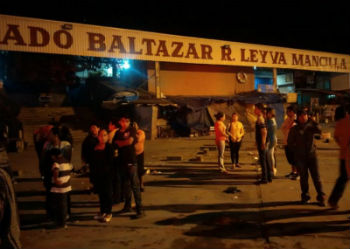Criminal groups are coercing butchers at a food market in western Mexico to buy meat from them at elevated prices and are killing those who do not comply, a new report finds, illustrating one of the many ways predatory crime hinders economic activity in Latin America.
Criminal groups supply most of the 60,000 kilos of meat sold every week at a market in the city of Chilpancingo, Guerrero, according to a report by El Universal. The criminal groups buy the meat at 50 Mexican pesos per kilogram and sell it to the market’s butchers for 60 pesos per kilogram, for earnings of 600,000 pesos (roughly $32,000) each week.
One of the butchers told El Universal that competitors offer lower prices than the criminal groups, but that buying from a competitor carries the risk of violent reprisals. Four butchers were killed in the past year alone, according to El Universal. Two vendors who worked at the market were also killed last year.
SEE ALSO: Mexico News and Profiles
Most vendors close their shops by 4 p.m., before it gets dark. They would normally stay open until 8 p.m., according to El Universal, but they fear more attacks, and few customers are willing to shop at the market during the evening.
InSight Crime Analysis
This disruption of the marketplace is common across much of the region. In 2013, Mexico’s then-Secretary of Health, Mercedes Juan López, said crime costs the country up to 15 percent of its annual GDP; in Honduras, that number was estimated to be 10 percent in 2012. The World Bank has identified high levels of violence as one of the major risks to economic growth in the region.
Of course, organized criminal activity can also spur growth. Several billions of dollars in drug profits are laundered through legitimate businesses in Mexico every year, sparking investment and economic activity. Panama has also benefited economically from lax banking regulations that for years enabled Colombian drug traffickers to stash their illicit profits in secrecy.
SEE ALSO: Coverage of Extortion
But predatory criminal activity undermines economies, and extortion is chief among them. A business association in El Salvador estimated that an average of two small businesses close per week because of extortion, which the International Crisis Group recently called the “lifeblood” of the country’s street gangs. A 2015 report by Honduran newspaper La Prensa found that Central America’s Northern Triangle countries of El Salvador, Honduras and Guatemala pay over $660 million every year in extortion fees.
But the use and threat of violence is not a prerequisite for having a damaging effect on the economy. Contraband smuggling is a multi-billion dollar a year industry in countries ranging from Guatemala to Paraguay. And earlier this year, watchdog groups in Brazil said contraband cost the country an astounding $41 billion in lost tax revenue and private sector losses in 2016.

